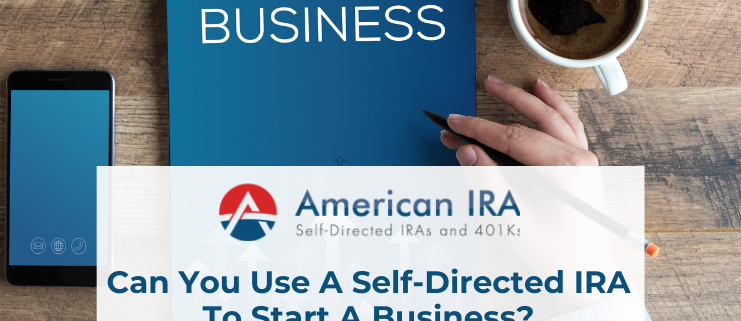Can You Use a Self-Directed IRA to Start a Business?
What do you imagine when you think of a business? A shop, maybe—something you run yourself, a place you can put a sign post outside that says: OPEN. But not every business works like that. In fact, you can have a business within a Self-Directed IRA for lots of reasons. Some investors use a Self-Directed IRA LLC, which gives them checkbook control for investing. Others might use a Self-Directed IRA to invest in a startup, which creates the potential for stunning returns. But it all hinges on a central question: can you use a Self-Directed IRA to start a business? Let’s answer that question today.
The Basics of Using a Self-Directed IRA For Business
Simply put, a Self-Directed IRA is what happens when you guide your IRA yourself, working through a custodian to issue buy/sell orders within the account. Rather than choosing from the limited options a traditional brokerage offers you, a Self-Directed IRA means you have more control to make the full range of retirement decisions available. Putting it another way, Self-Direction gives you more freedom. And yes, some of that freedom means potentially having a business within that IRA.
However, this process isn’t as simple as writing a check from your IRA account to cover startup costs. There are strict rules that need to be followed to remain compliant with IRS regulations. One of the most commonly used methods for funding a business with IRA money is through a strategy called ROBS, or Rollovers as Business Startups.
According to the IRS, “A ROBS is an arrangement in which prospective business owners use their retirement funds to pay for new business start-up costs. ROBS plans, while not considered an abusive tax avoidance transaction, are questionable because they may solely benefit one individual – the individual who rolls over his or her existing retirement funds to the ROBS plan in a tax-free transaction. The ROBS plan then uses the rollover assets to purchase the stock of the new C Corporation business.”
So you do have to be careful about how you choose to start a business. With that in mind, let’s look at one of the more popular options: using a Single Member LLC within a Self-Directed IRA to obtain checkbook control.
Using a Self-Directed IRA to Start an LLC Business
A Single Member LLC is a limited liability company which your Self-Directed IRA owns, 100%. As the sole member, your IRA holds all the ownership of the LLC. You, as the account holder, manage the LLC’s activities. However, to remain compliant with IRS rules, you don’t own the LLC personally. Your IRA does. This distinction is critical in ensuring that the IRA retains its tax-deferred (or tax-free, in the case of a Roth IRA) status.
One of the reasons investors like Self-Directed IRAs so much is that with an LLC like this, they can easily make investments from the checkbook of that LLC. This is a far more flexible way of investing than issuing buy/sell orders to a custodian. Rather than waiting for custodial approval, you’ll simply write the check, and voila—your retirement asset appears in your LLC, which means it’s a retirement asset. Of course, you’ll have to follow the same retirement investing rules as anyone else with a retirement account.
Interested in learning more about these processes, and how you can use an IRA to own a business outright? It’s possible. But it doesn’t hurt to have a little guidance with setup fees, paperwork, and administration. For more information, reach out to us at American IRA by dialing 866-7500-IRA.



